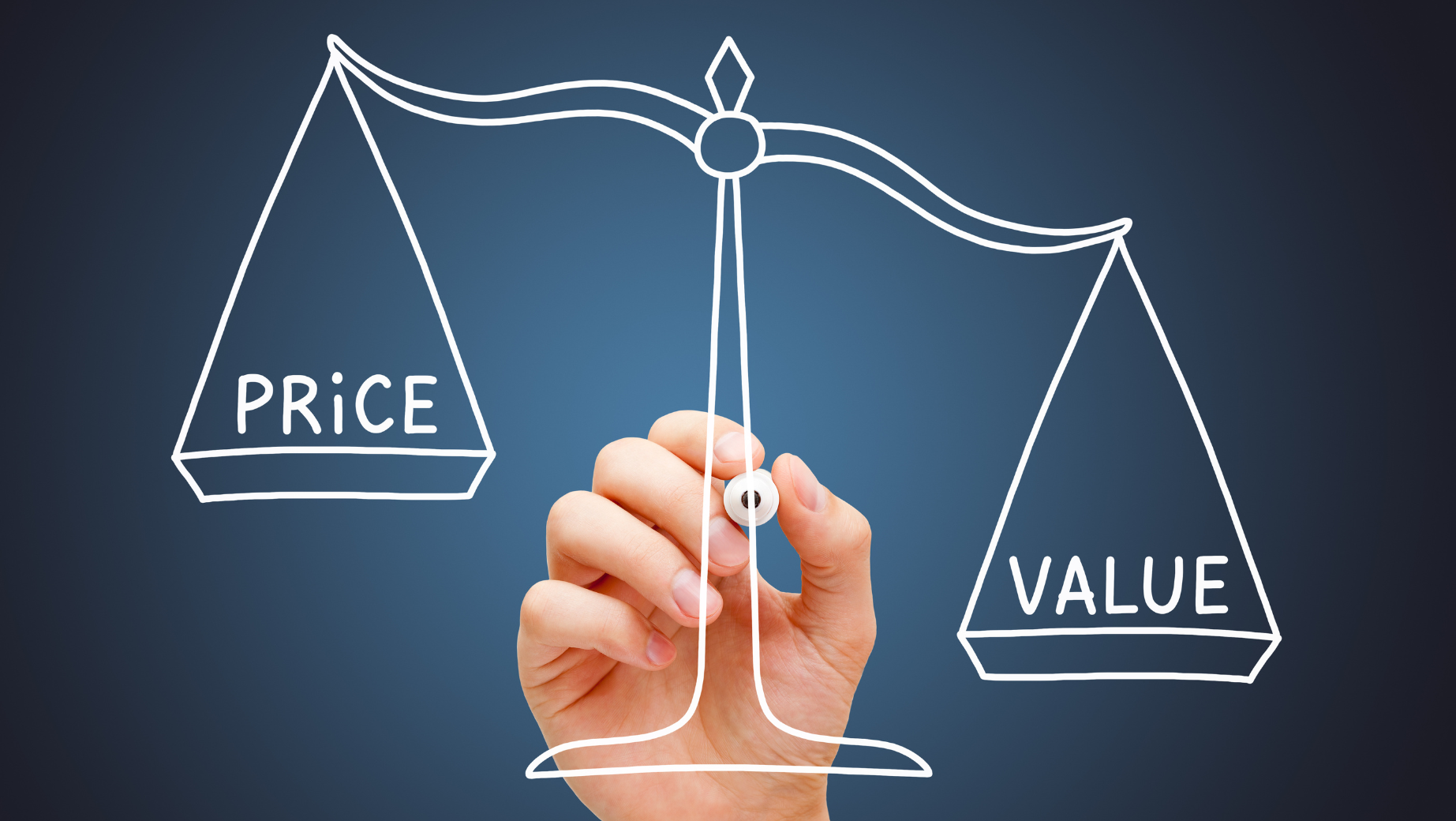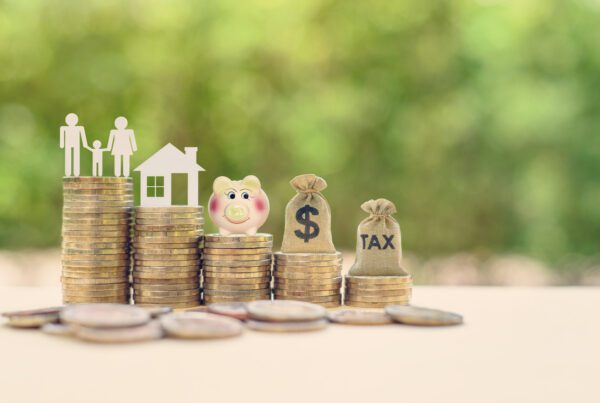[/vc_column_text]
Value of Tangible and Intangible Business Assets
Tangible assets are materials like equipment or furniture – assets that you can more or less touch. If they are of reasonable shape, you may be able to sell these or put a value on them to help build your selling price. Intangible assets are things like your business name, copyrights, trademarks, employees, customers, supplier contracts, and customer contracts. These are harder to value, and unless there is hard evidence like contracts, trademarks etc., communicating the value to potential buyers will be difficult.
Buyer and Seller Perspectives
To make a successful sale, vendors should try to view the process from the buyer’s position, and try to anticipate the questions that may be likely to come your way. If you can anticipate the questions with great answers, you will make the potential buyers feel at ease right away. After all, they are asking the questions to try an uncover why your selling, find out what’s wrong with the business etc.
From the Seller’s Perspective
– How will I get the best price for my business?
– How will I let the market place know my business is for sale?
– How much information should I disclose to prospective buyers?
– What is my business worth?
– What is my minimum price I will consider?
– What is it I want from this sale?
From the Purchaser’s Perspective
– What type of business do I want to buy?
– How will I find the right business for me?
– Should I buy this business?
– Is it too risky?
– Is everything being disclosed?
– Do I feel comfortable about what I am hearing? Are the claims true?
– How much information about the business can I get? (The more the better – at least 3 years of proper financials, talk to suppliers, customers, staff)
– What is the business worth?
– What is the maximum price I should offer?
Know Your Buyers
Buyers buy businesses for different reasons, from all walks of life. Typically a buyer wants the ability to earn a decent living, along with the freedom that can be associated with owning a business.
Alternatively, a buyer could be an investor, so some key financial indicators may be all they are looking at – as they want a particular return on their investment from day 1.
A buyer may also be a competitor looking to expand their market share within your industry. You may actually approach a competitor who you feel would be a good fit with your business to see if there is any interest in expending. If you have a few competitors who see your business as the next step in their expending operation, the competition for your business may actually drive up your price.
Knowing who is likely to buy your business will help your position your business for sale. Good Luck! Please take advantage of our free initial consultation to discuss any matter you wish.
Pricing Methods
You can determine the selling price of your business in a number of ways…
– Set the price at the same level as similar type businesses.
– Employ the services of an independent business valuer or broker to help determine the price.
– Use industry formulas that apply to working out the price (e.g. for a caravan park, we would work out an adjusted net profit figure, which is done by adding back interest, depreciation, owners super & wages and any excess expenses like repairs and maintenance etc. From this figure, it is usually 3.5 to 5 times. So if adjusted Net profit were $250,000, you would be looking at a business worth $875,000 to $1,000,000).
– Simply set a figure you would like to achieve and see if there is anyone willing to pay for it.
– Test the water.
Remember – the business is only worth what someone is willing to pay. It doesn’t matter how much time you have put into it or what you have done. The value is always in the buyer’s eyes!
Value of Tangible and Intangible Business Assets
Tangible assets are materials like equipment or furniture – assets that you can more or less touch. If they are of reasonable shape, you may be able to sell these or put a value on them to help build your selling price. Intangible assets are things like your business name, copyrights, trademarks, employees, customers, supplier contracts, and customer contracts. These are harder to value, and unless there is hard evidence like contracts, trademarks etc., communicating the value to potential buyers will be difficult.
Buyer and Seller Perspectives
To make a successful sale, vendors should try to view the process from the buyer’s position, and try to anticipate the questions that may be likely to come your way. If you can anticipate the questions with great answers, you will make the potential buyers feel at ease right away. After all, they are asking the questions to try an uncover why your selling, find out what’s wrong with the business etc.
From the Seller’s Perspective
– How will I get the best price for my business?
– How will I let the market place know my business is for sale?
– How much information should I disclose to prospective buyers?
– What is my business worth?
– What is my minimum price I will consider?
– What is it I want from this sale?
From the Purchaser’s Perspective
– What type of business do I want to buy?
– How will I find the right business for me?
– Should I buy this business?
– Is it too risky?
– Is everything being disclosed?
– Do I feel comfortable about what I am hearing? Are the claims true?
– How much information about the business can I get? (The more the better – at least 3 years of proper financials, talk to suppliers, customers, staff)
– What is the business worth?
– What is the maximum price I should offer?
Know Your Buyers
Buyers buy businesses for different reasons, from all walks of life. Typically a buyer wants the ability to earn a decent living, along with the freedom that can be associated with owning a business.
Alternatively, a buyer could be an investor, so some key financial indicators may be all they are looking at – as they want a particular return on their investment from day 1.
A buyer may also be a competitor looking to expand their market share within your industry. You may actually approach a competitor who you feel would be a good fit with your business to see if there is any interest in expending. If you have a few competitors who see your business as the next step in their expending operation, the competition for your business may actually drive up your price.
Knowing who is likely to buy your business will help your position your business for sale. Good Luck! Please take advantage of our free initial consultation to discuss any matter you wish.
Setting The Price
Setting the price for your business is one of the hardest tasks a business seller can do. Too high and it won’t sell, too low and you throw away all that hard work undertaken over the years to build the business up. You need to talk with as many parties as possible when setting the price; business brokers, your accountant, industry experts, valuer etc. Get as many opinions as you can. It’s a hard task. As a seller you want reward for all the hard work and the buyer wants a steal. Find that middle ground and ask what is a fair price. Both the seller and buyer need to be happy!
Pricing Methods
You can determine the selling price of your business in a number of ways…
– Set the price at the same level as similar type businesses.
– Employ the services of an independent business valuer or broker to help determine the price.
– Use industry formulas that apply to working out the price (e.g. for a caravan park, we would work out an adjusted net profit figure, which is done by adding back interest, depreciation, owners super & wages and any excess expenses like repairs and maintenance etc. From this figure, it is usually 3.5 to 5 times. So if adjusted Net profit were $250,000, you would be looking at a business worth $875,000 to $1,000,000).
– Simply set a figure you would like to achieve and see if there is anyone willing to pay for it.
– Test the water.
Remember – the business is only worth what someone is willing to pay. It doesn’t matter how much time you have put into it or what you have done. The value is always in the buyer’s eyes!
Value of Tangible and Intangible Business Assets
Tangible assets are materials like equipment or furniture – assets that you can more or less touch. If they are of reasonable shape, you may be able to sell these or put a value on them to help build your selling price. Intangible assets are things like your business name, copyrights, trademarks, employees, customers, supplier contracts, and customer contracts. These are harder to value, and unless there is hard evidence like contracts, trademarks etc., communicating the value to potential buyers will be difficult.
Buyer and Seller Perspectives
To make a successful sale, vendors should try to view the process from the buyer’s position, and try to anticipate the questions that may be likely to come your way. If you can anticipate the questions with great answers, you will make the potential buyers feel at ease right away. After all, they are asking the questions to try an uncover why your selling, find out what’s wrong with the business etc.
From the Seller’s Perspective
– How will I get the best price for my business?
– How will I let the market place know my business is for sale?
– How much information should I disclose to prospective buyers?
– What is my business worth?
– What is my minimum price I will consider?
– What is it I want from this sale?
From the Purchaser’s Perspective
– What type of business do I want to buy?
– How will I find the right business for me?
– Should I buy this business?
– Is it too risky?
– Is everything being disclosed?
– Do I feel comfortable about what I am hearing? Are the claims true?
– How much information about the business can I get? (The more the better – at least 3 years of proper financials, talk to suppliers, customers, staff)
– What is the business worth?
– What is the maximum price I should offer?
Know Your Buyers
Buyers buy businesses for different reasons, from all walks of life. Typically a buyer wants the ability to earn a decent living, along with the freedom that can be associated with owning a business.
Alternatively, a buyer could be an investor, so some key financial indicators may be all they are looking at – as they want a particular return on their investment from day 1.
A buyer may also be a competitor looking to expand their market share within your industry. You may actually approach a competitor who you feel would be a good fit with your business to see if there is any interest in expending. If you have a few competitors who see your business as the next step in their expending operation, the competition for your business may actually drive up your price.
Knowing who is likely to buy your business will help your position your business for sale. Good Luck! Please take advantage of our free initial consultation to discuss any matter you wish.







